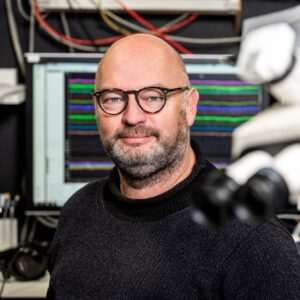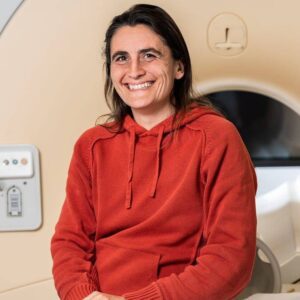
Funding for groundbreaking fundamental research
4 May 2022

4 May 2022
Seven consortia with top researchers from different Dutch research institutions, including The Netherlands Institute for Neuroscience, have received funding to carry out scientific research programs in the coming years as part of the research program Gravitation.
Valeria Gazzola and Christian Keysers are part of the consortium ‘Growing Up Together in Society’ that has been awarded 22 million euros. The goal of this 10-year project is to understand how young people grow up in increasingly complex societies and make contributions to society. This consortium of neuroscientists, psychologists, sociologists and child psychiatrists, which also includes the Erasmus University of Rotterdam, the University of Amsterdam, Vrije Universiteit, Amsterdam UMC, Leiden University, University of Groningen, Utrecht University and the Radboudumc, under the coordination of Eveline Crone, has been 5 years in the making. It will study individual neurobiological development in relation to educational processes, social networks, and societal norms, including antisocial behavior. The project will integrate neuroscience with individual and environmental factors to develop an integrative framework on self-regulation development and contributions to society that will have explanatory as well as predictive power across multiple domains of functioning in adolescence and early adulthood. “Working together with so many leading scientists in the Netherlands will allow us unprecedented insights into the mechanisms that help children grow up to become the adults out societies need” summarizes Keysers. Gazzola adds: “In particular, at the NIN, we will leverage our expertise in the neural basis of empathy and social decision-making to develop paradigms that we can use to shed light onto individual differences and the developmental trajectories of the mechanisms that link individuals together.”
The consortium ‘The Dutch Brain Interfaces Initiative’ will receive 21,9 million euros. Together with the Radboud University and other partners, Pieter Roelfsema, Valeria Gazzola and Chris de Zeeuw will focus on interacting with the brain. “To understand how the brain works, we must understand how its parts interact with each other and with the world outside” says Roelfsema. “Understanding these interactions is essential if we build brain interfaces, and novel prosthetic approaches to nervous system ailments.” DBI2 will develop principles and devices to improve therapeutic strategies for brain disorders, and disorders affecting sensory and emotion systems and cause compulsions.
The Gravitation program enables researchers to carry out top-level university research and multidisciplinary cooperation for ten years. One of the cornerstones of the program is cooperation across disciplines and universities. The scientists set up excellent scientific research programs together in consortia. The purpose of Gravitation is to encourage research programs to achieve international breakthroughs.




The Friends Foundation facilitates groundbreaking brain research. You can help us with that.
Support our work